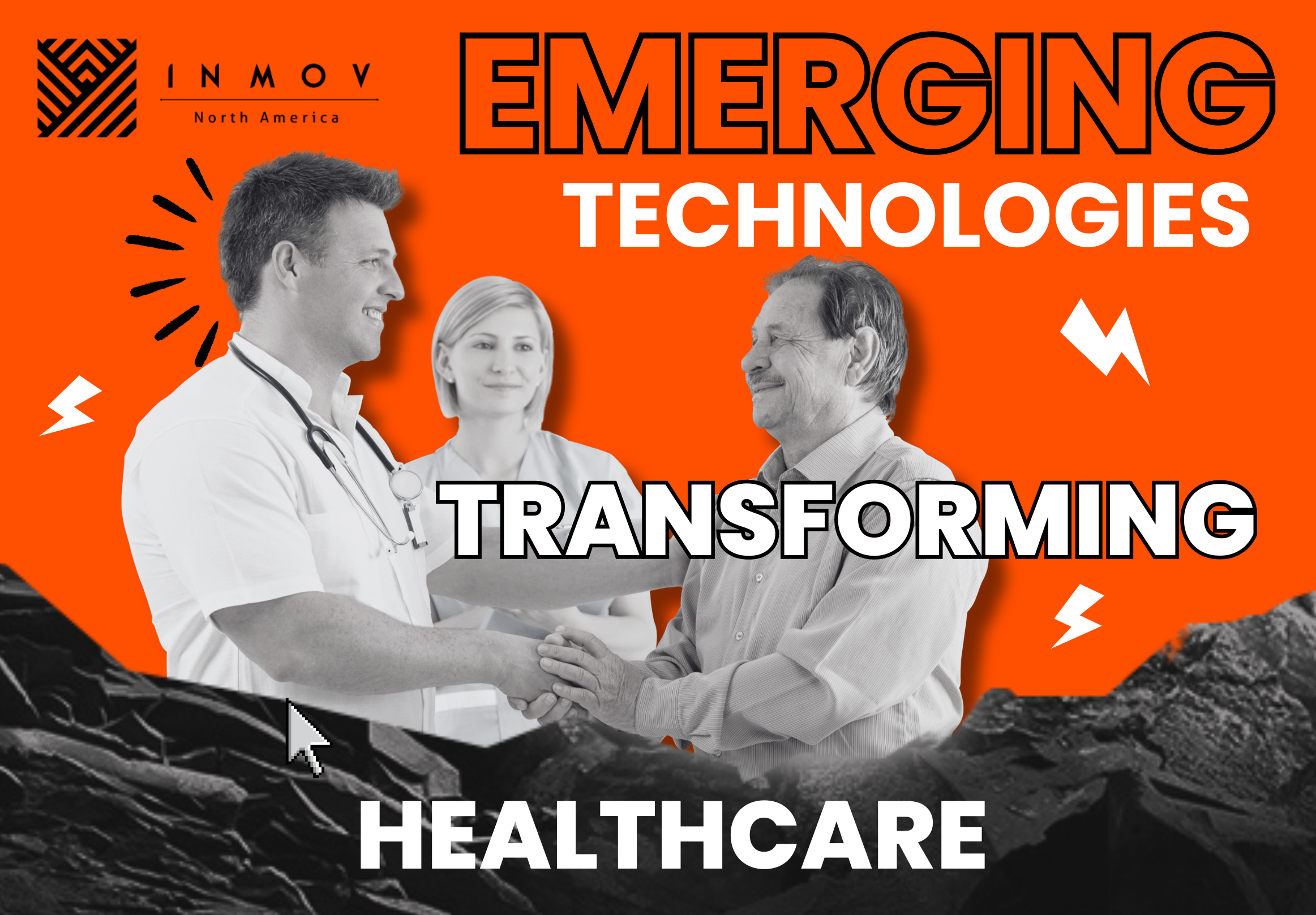- info@inmov.com
- ldaza-ct@inmov.com
- +1 786-983-5330
-
1111 Brickell Avenue
10th Floor. Miami, FL 33131
All rights reserved © 2024

Technology advances every day, and you may wonder how it affects your health. The technological revolution creates new opportunities and advantages for this sector. You may be wondering if new technologies can improve the healthcare system, and the answer is yes.
Many times we tend to think “but it is just technology, beyond the new machinery in the industry, what other problems could it solve?” Technology contributes to solving problems that arise every day in patient care, health treatments, source information and much more. For example, as a source of information: We all access the Internet daily, whether to browse, go to a specific website or enter an app to search for information on a wide range of topics. Many of the searches are related to medical issues, about symptoms or even medications. With the Covid-19 crisis we are experiencing, web searches and app use in the industry have increased significantly. But why not go to a doctor instead? Of course! But there is no doubt that digital technology has influenced users to have more capacity to make decisions. We also see great improvements in patient care thanks to technology. How? Thanks to advances in cybersecurity and software, patient care has improved its quality, now accessing medical records is even easier and is available to doctors when they need it, it is easier to update and assign corresponding treatments to ensure of good care, in addition to having digital apps that help make medical appointments, cancel or order medications in a more efficient way.
Innovation in technology has helped a lot in healthcare, allowing advances in the quality of life of all people and numerous facilities for both healthcare workers and patients. Without further ado, today we will share with you some technologies that are revolutionizing the industry:
Calling all healthcare industry leaders! Are you ready to revolutionize your digital infrastructure? Inmov specializes in crafting personalized solutions to optimize your operations. From custom applications to advanced software, we’re here to enhance your healthcare services. Let’s embark on this transformative journey together. Reach out to us today to discover how we can propel your organization forward!